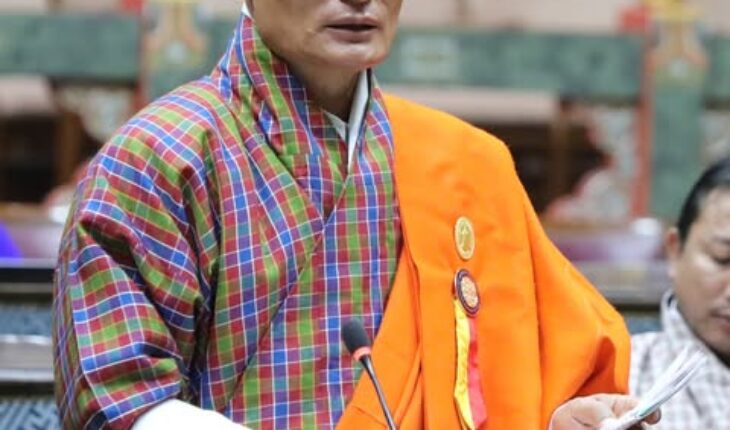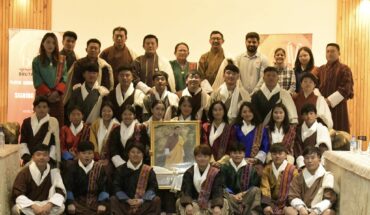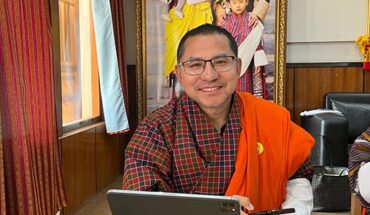
Nearly 1 in 5 Bhutanese to Be Elderly by 2047
TIL BDR GHALLEY
Thimphu
Bhutan is set to become an ageing society by 2027, with citizens aged 60 and above projected to account for nearly 20 percent of the population by 2047.
Prime Minister Tshering Tobgay, addressing the National Assembly, outlined a series of Royal and government-led initiatives aimed at safeguarding the wellbeing and dignity of the country’s growing elderly population.
Data from the National Statistics Bureau indicates that as of 2022, individuals aged 60 and above made-up 9.5 percent of the population. This figure is expected to rise to 19.7 percent by 2047.
The share of those aged 65 and above is projected to increase from 6.6 percent to 13.4 percent over the same period.
The issue was raised by Kengkhar-Weringla MP Dorji Wangmo, who called for clarity on the implementation of the National Policy for Senior Citizens and urged the establishment of stronger systems in healthcare, social protection, and infrastructure tailored to elderly needs.
“Bhutan’s elderly population is steadily increasing and will cross the ageing society threshold within the next two years,” Dorji Wangmo said.
She cautioned that delays in policy implementation could lead to “gaps in service delivery, rising dependency ratios, and increased vulnerability among the ageing population.
Responding to the concern, the PM confirmed that ageing has been recognized as a national development priority. He attributed the demographic shift to rising life expectancy, which now exceeds 72 years.
“This is the outcome of free and equitable health services, the country’s spiritual resilience guided by the principles of Gross National Happiness, and the enduring compassion and care of the Monarch,” he said.
While Bhutan has historically relied on family and community-based care systems, PM noted that modernization is weakening traditional caregiving structures, particularly affecting those without close family or financial security.
Highlighting key Royal interventions, the PM cited the Goensho Tshamkhang residential care facility in Wangsisina, established under Royal command. It currently houses 62 senior citizens, providing them with food, shelter, healthcare, and spiritual services.
He further stated that 725 elderly citizens across all 20 Dzongkhags are supported under the Royal Kidu programme, which includes access to medical services and end-of-life arrangements coordinated by Dzongkhag Kidu Officers.
During the COVID-19 pandemic, nearly 30,000 elderly individuals were vaccinated, with some receiving up to nine doses under a nationwide initiative led by His Majesty.
PM also highlighted the government’s efforts to formalize eldercare services through the National Social Protection Policy, which provides financial assistance, access to healthcare, and transportation subsidies for senior citizens.
The PM addressed Bhutan’s declining fertility rate from 5 to 6 children per family in earlier generations to just 1.7 today as a key factor contributing to the demographic imbalance.
“If we are not able to fulfill this, in the future when the population is made up mostly of elderly people, it will be difficult,” he said. He emphasized that a fertility rate of at least 2.1 is needed to sustain the current population level.
MP Dorji Wangmo also asked whether the government plans to establish old age homes, as is common in other countries. In response, the PM said there are no current government plans to do so.
“If Bhutanese working in this field abroad return and wish to start such a business, the government is ready to discuss,” he added, suggesting openness to private sector participation.
The government has introduced several policy frameworks to support the elderly population. These include the National Senior Citizens Policy launched in 2023, a disability policy, a rural life insurance scheme, and a broader sustainable development framework.
The Senior Citizens Policy guarantees priority access for elderly individuals in hospitals, banks, and public transport.
Support for elderly care also comes from religious institutions. Lingmukha Gewog in Punakha initiative by His Holiness the Je Khenpo in 2014, currently supports 26 retired monks.
The government has allocated Nu 2 billion in the 13th Five-Year Plan to implement a new social protection system aimed at strengthening social security for senior citizens.
With Bhutan approaching the threshold of an ageing society, the urgency now lies in translating policy into action.
Strengthening eldercare through formal services, targeted social protection, and inclusive community support complemented by Royal initiatives will be essential to safeguard the dignity, wellbeing, and rights of senior citizens.





